
It’s a shame that Congress—both Democrats and Republicans—have been less interested in learning from America’s response to Covid-19 than in turning it into a political football. Yesterday, Dr. Anthony Fauci testified before a House subcommittee, but the lack of curiosity and understanding about the virus allowed the good doctor to walk away unscathed.
Fauci, who retired as the head of the National Institute of Allergy and Infectious Diseases in late 2022, was the personification of the establishment’s response to the pandemic. It was he who insisted that schools needed to be closed, that lockdowns needed to be enforced, that vaccines should be mandated. Most blue states believed they were “following the science” in following Fauci’s recommendations. (Didn’t Fauci once say “I represent science”?) And though many Democrats now admit that this approach was a mistake, Fauci never has.
Yet not a single Democrat called him out on these recommendations that did so much harm to so many people. Instead, Jill Tokuda, the Democrat from Hawaii, asked Fauci a series of questions designed to portray him as the indispensable man, without whom many more would have died. “I want to thank you, not blame you,” Tokuda said. “Thank you for your science.” Indeed, Fauci went so far as to claim that his primary role during the pandemic was to help roll out the vaccines in record time. In fact, he had nothing to do with the vaccine effort—but of course, no one called him on that either.
As for the Republicans, they have had one obsession for years: to show that Covid-19 was the result of a lab leak. Republicans have long accused Fauci of using government funds to help pay for research at the Wuhan Institute of Virology that could have led to the creation of the virus. And he has long denied it, including at yesterday’s hearing.
Remarkably, though, Fauci maintained that he had always kept an “open mind” about the origins of the virus causing Covid-19 and that he never attempted to censor or discredit opposing voices on the policies he spearheaded during the pandemic. This is laughable. Until the hearing, Fauci had consistently dismissed the lab leak hypothesis. And as for those opposing voices, after three dissident scientists published the Great Barrington Declaration, calling for a strategy of protecting the vulnerable and letting life resume otherwise, Fauci compared them to the doctors in the 1980s who claimed HIV didn’t cause AIDS.
One of those three dissident scientists, Dr. Jay Bhattacharya, an epidemiologist and professor of health policy at Stanford University, told The Free Press that Fauci is “incapable of intellectual honesty” and of “honest engagement with his critics.”
“I see no capacity for him to admit error at all throughout the entire pandemic. I just see arrogance,” Bhattacharya said, adding that no person “should ever have the kind of power that Fauci had” while he was director of the NIAID.
Republicans also tried to hammer Fauci over the fact that his senior adviser, David Morens, had actively evaded the Freedom of Information Act, writing in emails that he learned “how to make emails disappear” and suggesting to others they contact Dr. Fauci through a “secret back channel” or through his personal email address to avoid their communications becoming available to the public. In one email, Morens wrote to one recipient that there was “no worry about” the media finding out because Fauci “is too smart to let colleagues send him stuff that could cause trouble.”
That last part appears to be true. Fauci spent much of the hearing distancing himself from Morens—condemning his behavior but stating repeatedly he “knew nothing” of his “actions.” There was nary an email to suggest otherwise. Tony Fauci came through intact, as usual.
Joe Nocera is a columnist for The Free Press and the co-author of a book about the pandemic, The Big Fail. Follow him on X @opinion_joe. Francesca Block contributed reporting to this piece.
To support The Free Press, become a subscriber today:

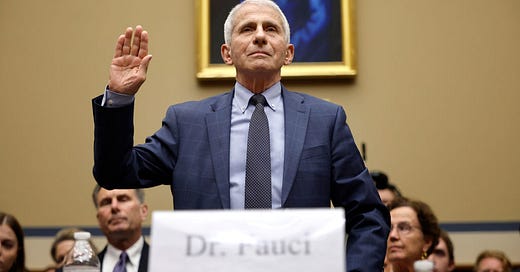



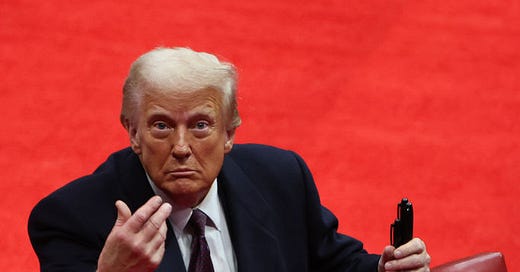
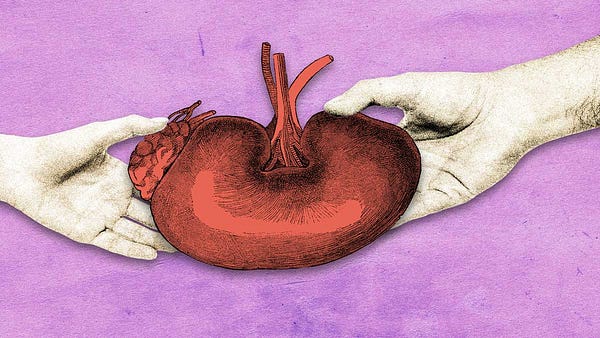

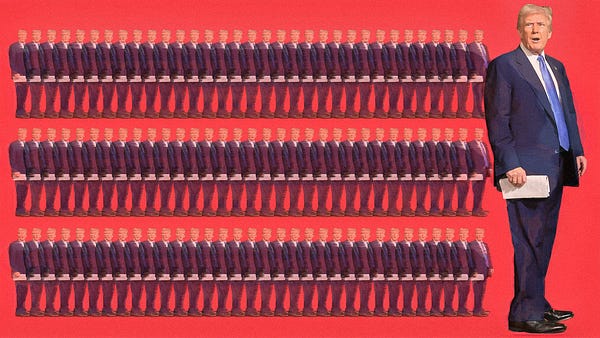



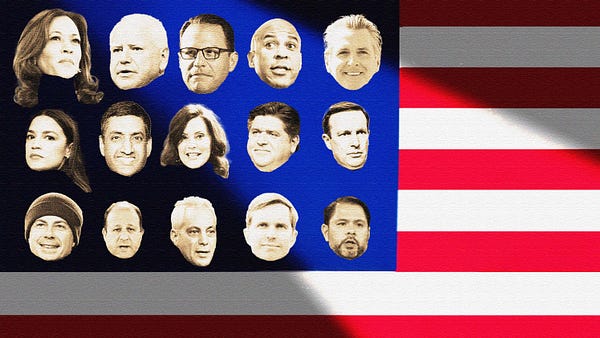

"The Real Fauci..." book by Kennedy is telling. Fauci is brutally corrupt, and has an evil God complex that needs to be criminally punished. He absolutely funded gain of function research in China, and this panel was just more of the same political talking heads' gaming the system.
Just another example of how our representatives are a useless gaggle of idiots.